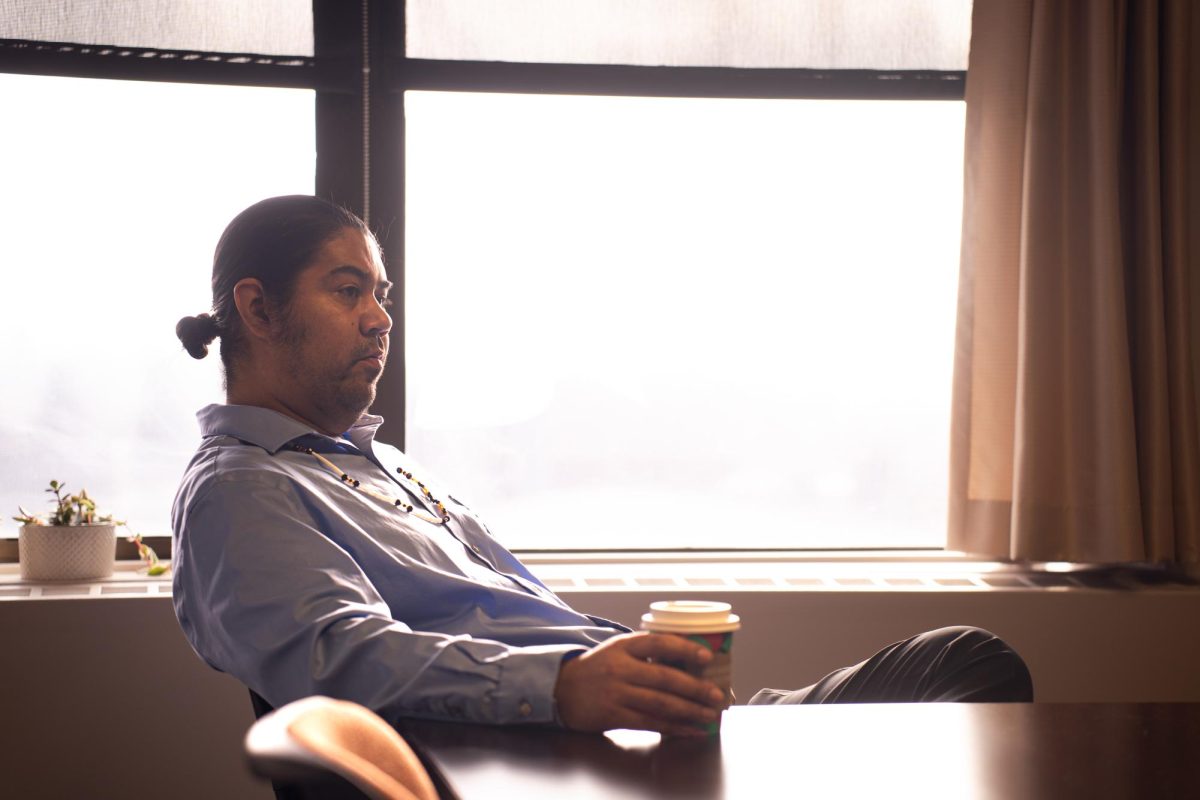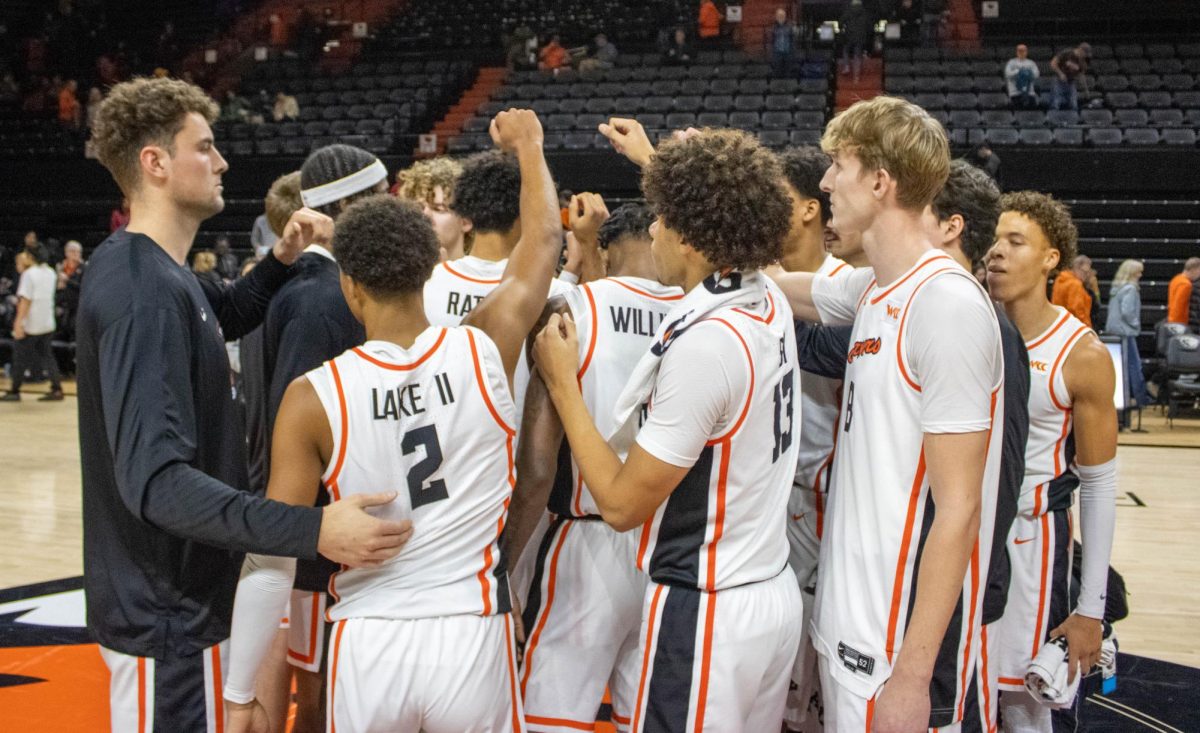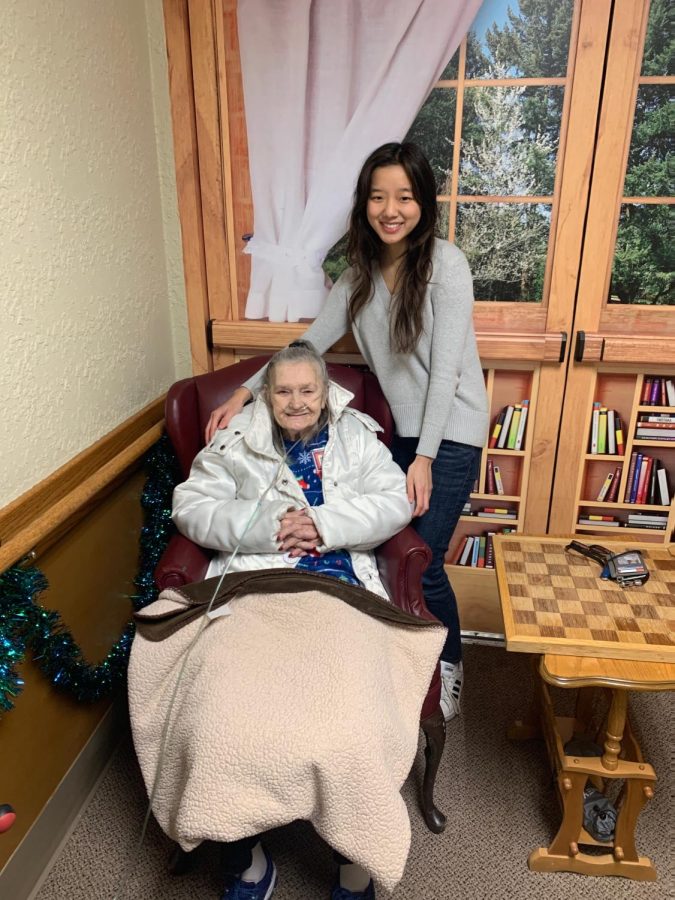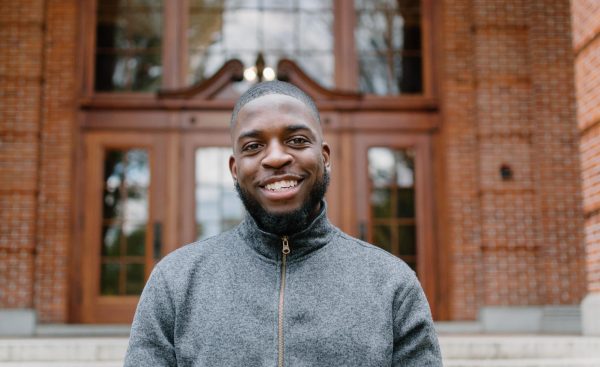OSU student founds an Alzheimer’s Buddies chapter: program assists in improving the lives of those affected by Alzheimer’s
Photo of program co-director Kaitlyn Kim posing for a photo with her buddy.
January 17, 2023
Oregon State University student Grace Scuderi hopes to improve the lives of families and those affected with Alzheimer’s, or other forms of dementia, through the founding of an Alzheimer’s Buddies chapter.
Scuderi, a fifth-year student and Sigma Delta Omega sorority member, has maintained her curiosity for the scientific world since a young age.
With an ecologist father and an audiologist mother, she had always been surrounded by science and possibility.
Scuderi’s love for science eventually brought her under the mentorship of Tory Hagen, a research doctor and professor at OSU.
Through her own experiences — having a grandmother with dementia and a need to understand the human body — she forged a scientific journey into the world of molecular biology and Alzheimer’s research.
“I know that [for] people with Alzheimer’s, if they’re socially isolated, cognitive impairment can decline,” Scuderi said. “If they are not around people, someone needs to do something to strengthen the social network.”
In 2020, as a sophomore honor student, Scuderi founded the Alzheimer’s Buddies program at OSU.
“(At first) I kept getting ghosted, essentially, by facilities,” Scuderi said.
She spent months searching for the perfect care center to partner with. Some facilities wouldn’t respond, and others would feign interest but never follow up.
After a few months, she was welcomed into open arms from the Grace Center, a specialized health and social adult day center.
“I just gave them a phone call,” Scuderi said. “We said, we have volunteers, and they’re willing and ready to go.”
OSU student-volunteers would fill out applications and match with their “buddy” based on common shared interests and prior consent from the family. The volunteers then act as a companion for their buddy: playing games, listening to music or making arts-and-crafts.
Scuderi admitted that she’s never played dominoes until her buddy suggested it to her.
At the center there are plenty of activities for students to do with their buddies, but sometimes they just might want to sit and talk.
“The club is really about bringing joy to their life,” Scuderi said. “Understanding that they are still a person and not their disease.”
Co-director
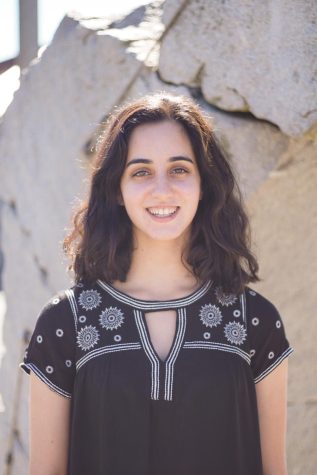
, a second year honors student at OSU studying biochemistry and molecular biology, likes to keep extra copies of her journal entries, and she recommends that the others do the same for themselves.
Student-volunteers are mandated to submit journal entries to the national Alzheimer’s Buddies organization: documenting their activities, time spent and any personal experiences for research purposes.
“It’s heartwarming and touching to see that you are making a tangible impact on the lives of others,” Kim said. “I’ve always wanted to find ways to connect (with people).”
Kim has been meeting with her buddy for over a year, and in her words, she loves to see the trust and relationship with her buddy grow overtime.
Since Alzheimer’s affects memory, it means a lot to Kim and the other volunteers when their buddies remember, and even ask about their whereabouts.
A favorite activity Kim likes to do with her buddy is play chess.
When she’s not with her buddy, you might find her at the Magnusson Lab, in the Linus Pauling Institute, which studies the early onset of Alzheimer’s disease.
“I came to OSU with the intention of fulfilling two different sides of myself…the side that values scientific uncertainty and the thrill discovery…and also the empathetic side of me. I don’t want to do it just for the science,” Kim said.
To her, it’s not just about the empirical data, but using her research to help patients and future researchers.
Kim feels that seeing her buddy is a way to unwind and re-motivate herself in her research. She is hopeful in expanding the program to more facilities, after already doubling membership with, other, co-director Max Fry. They both express excitement to do more.
Grace Center outreach coordinator, Denise Rattanapaibloncharoen, has been working for them for over two years and is always looking for programs to serve the residents of the community.
“We’re always looking for intergenerational programs and activities, and being able to collaborate with other organizations,” Rattanapaibloncharoen said.
Even though their center always had volunteers, some even being university students, Alzheimer’s Buddies was a program that was completely new to her when presented by Scuderi.
Initially, there was skepticism because their residents only attended the center for a certain amount of time each day, as opposed to living there. However, the program was something that the caregivers and families were both interested in.
“One of the good things is seeing our more isolated individuals engaging in our activities and socializing more,” Rattanapaibloncharoen said.
According to Rattanapaibloncharoen, sometimes she’ll also see the volunteers stay after their mandated hour-long meeting, meet with their buddy multiple times throughout the week, and even keep in touch with their buddy post-graduation.










